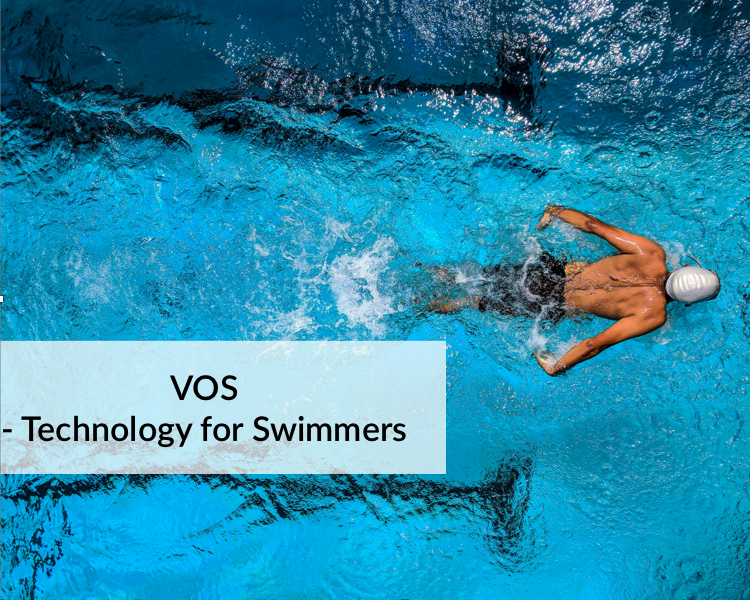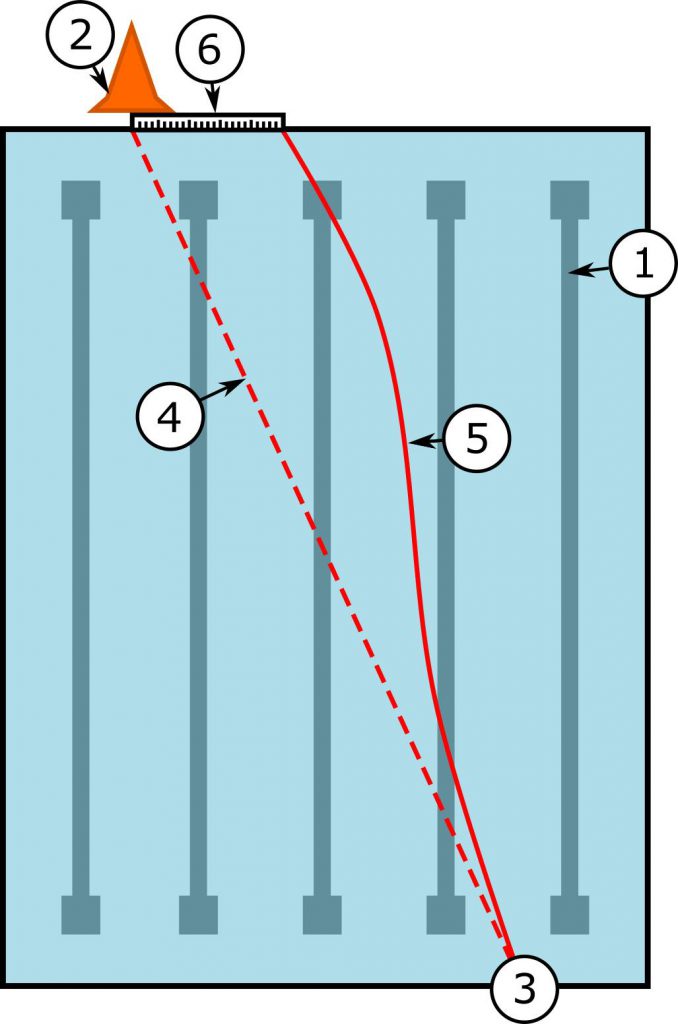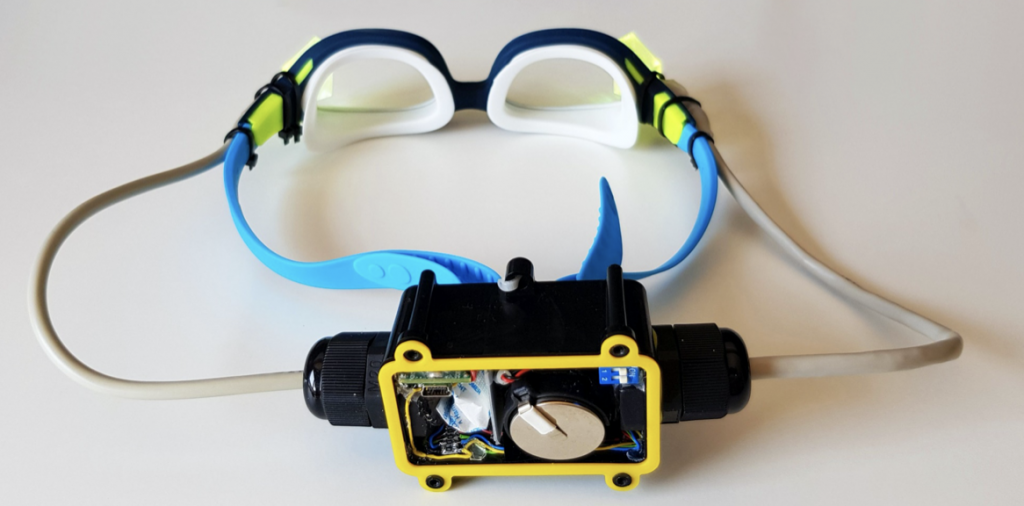Clairbuoyance: Improving Directional Perception for Swimmers (Honourable mention at CHI 2019)

We proudly inform that paper Clairbuoyance: Improving Directional Perception for Swimmers earned Best Paper Honorable Mention Prize during The ACM CHI Conference on Human Factors in Computing Systems 2019. You can read the full article here.
While we usually have no trouble with orientation, our sense of direction frequently fails in the absence of a frame of reference. Open-water swimmers raise their heads to look for a reference point, since disorientation might result in exhaustion or even drowning. This project deals with Clairbuoyance — a system that provides feedback about the swimmer’s orientation through lights mounted on swimming goggles.

We decided to augment the most ubiquitous swimming gear (besides the suit) – swimming goggles. Therefore, we reduced the impact of the system on usability, portability and social acceptance. Through the design, we conducted multiple tests and interview within local swimming club community. During the research phase, we conducted experiments with swimmers at Lodz University of Technology.

We considered two different models on direction navigation.
- Absolute continuous feedback – mapping cardinal directions
- Relative discreet feedback – cueing the detour from the goal direction

Swimming goggles were embedded with the tracking device and LED-based feedback. We used Arduino-based prototype equipped with IMU for control of swimmer’s head rotation. Aeronautical angles of roll, yaw and pitch were used for assessing sight direction.


Types of feedback preferred were correlated with swimming proficiency. Advanced swimmers preferred Relative Discreet Feedback, while rookies opted for Absolute Continuous Feedback.
It turned out that task completion time was significantly reduced with feedback applied. Providing feedback did not reduce the orientation error, Relative Feedback turned out to increase it. Visual orientation feedback increased the speed of open-water swimming.
Andrzej Romanowski, Institute of Applied Computer Science PŁ
Deputy dean for WEEIiA full-time studies
Julia Dominiak, SKN Ubicomp PŁ
Natalia Paluch, SKN Ubicomp PŁ
Francisco Kiss, University of Stuttgart
Paweł W. Woźniak, University of Utrecht
